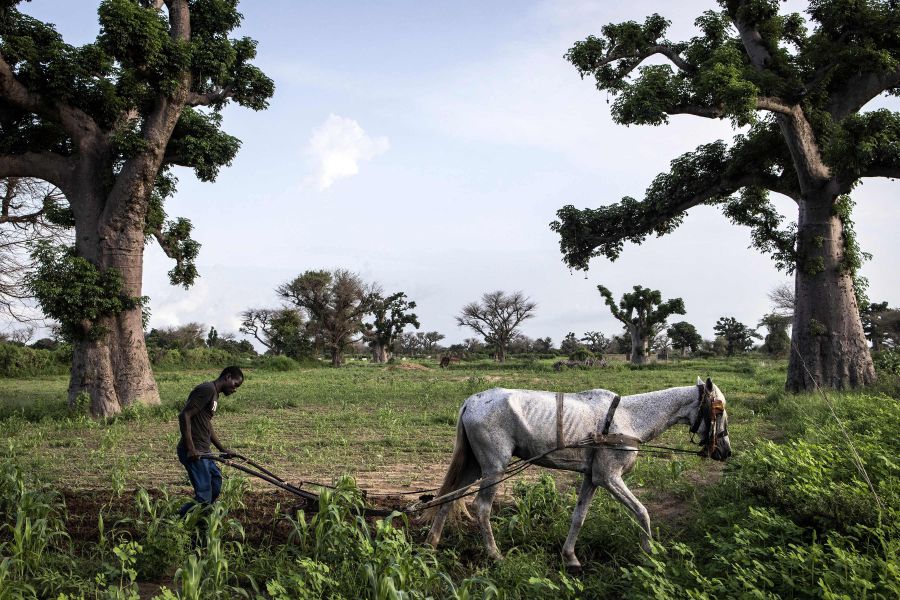The day began as it had nearly every day for the last 42 months: emerge from the bedroom to switch off the upstairs lights then make my way down to do the same downstairs.
Yup, among my duties in Dakar was as a glorified "switch on-ner and off-er".
That day, even the 20-minute drive to the office seemed to hold a touch of poignancy. It is bound to hit even the most hardhearted of diplomats — that feeling of knowing this would be the "last this" and the "last that".
But this is also the true beauty of a nomadic lifestyle, knowing that other challenges await and that nothing endures forever.
For the diplomat, every posting is different, and every posting brings with it its own set of challenges. But since 2020, the challenges have been so radical that the guidebook for diplomats in this new world has not even been thought of yet, much less written.
I must say that it has been a very weird past year-and-a-half. Dakar used to be a bustling, almost frenetic community for diplomats. There would be receptions almost every week, and ambassadors fought over the dates to hold their own events, from a charity short story recital by Austria, to a culinary class by Thailand, to a listen-to-the-victims of sexual slavery by Switzerland.
With more than 75 foreign embassies, and 34 United Nations offices in Dakar, it was small wonder that there was always something to do and somewhere to be. The readiness of the members of the Senegalese Administration to engage with the many diplomats also meant a lot of meetings could be held.
In short, only the most unsocial of beings would feel lonely and left out in Dakar, which was once dubbed the Paris of Africa.
Unlike most other capitals of the world where the Head of State remains at arm's length from the diplomatic corps, you could always see the president personally at least once a year. Every first week of the new year, the president would gather all the ministers, Supreme Court judges, members of the National Assembly, religious leaders, and heads of diplomatic missions under a tent in his Palace to be presented one by one to him.
Every year, we would remind the Palestinian ambassador to be brief — this was no time to raise bilateral issues with the president.
This new year ritual of the president would always be eagerly anticipated because we could take measure of our colleague just by the number of times he had to cross the aisle to speak to someone.
Each group had its own quadrant under the tent, and we were kept separate from each other by just a string of stanchions inbetween. Protocol was kept busy trying to keep us separate as people hailed friends across the aisle.
Then there would be the many functions that the host government organises — book signing, inaugurations, official launching of the new airport, the new train station, the new monument and tributary museum. All manner of things where the president would just walk around and stop to talk to the different people he knows as he passes them.
It was a different world then.
After March 2020, the diplomatic community had to figure out a way to operate in a pandemic-fuelled world. We were doing well with very few Covid-19-related deaths in Senegal and vaccines arriving by the planeload.
Yet still, gone were the kissing of cheeks, shaking of hands and free mingling. Instead, there would be tentative smiles behind masks as hosts greeted guests from three feet away, and temperature checks replaced guest books.
It was the year in which my face mask wore more lipstick than I did. It was the year when my dressing had to be impeccable because it would be easy for a Zoomer to just screenshot the meeting and Google my work while I spoke.
That last week I was in Dakar, we — my officers and I — were still on full throttle. We had a virtual meeting with Universiti Teknologi Petronas, where the vice-chancellor was kind enough to spend time to answer our questions; we had an event for a food promotion that adhered to social distancing rules; and, we had WhatsApp chats with contacts to discuss next steps in our partnerships.
As my plane took off, I watched the coastline of Dakar slowly fade away from view. Like the ebbing of the tide, my time in Senegal was over. But unlike the tide, I did not come away bereft. Everyone I had encountered had further enriched my existence.
The land of Teranga had been good to me. And I hope that I had, in turn, been good to it.
This is the last Dakar Diaries article. The writer has since left Senegal and hopes to write on other matters
The views expressed in this article are the author's own and do not necessarily reflect those of the New Straits Times



